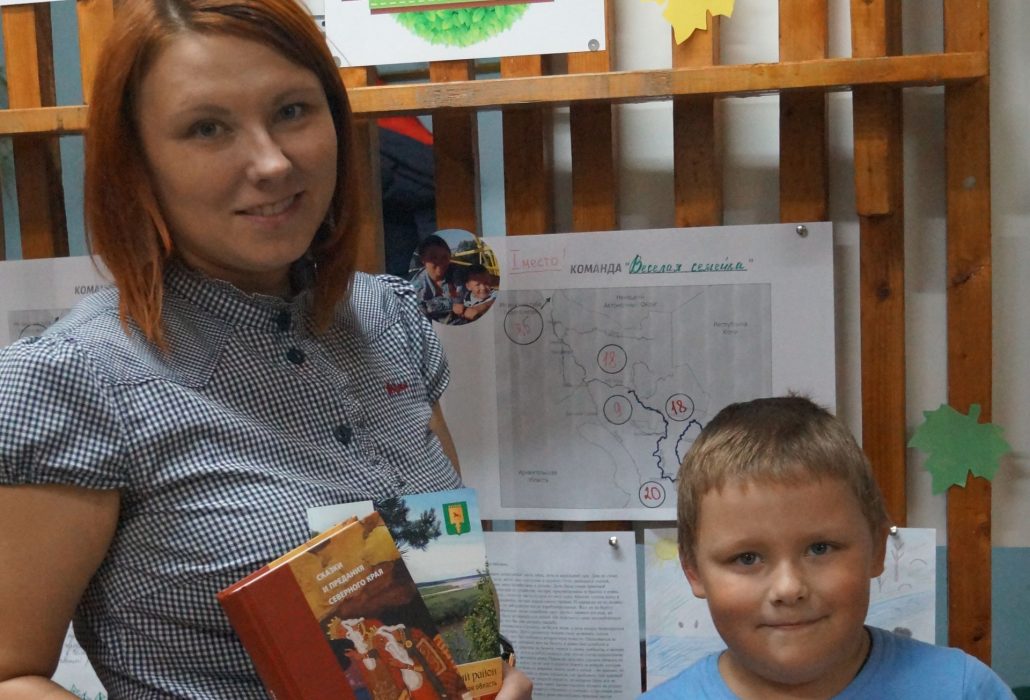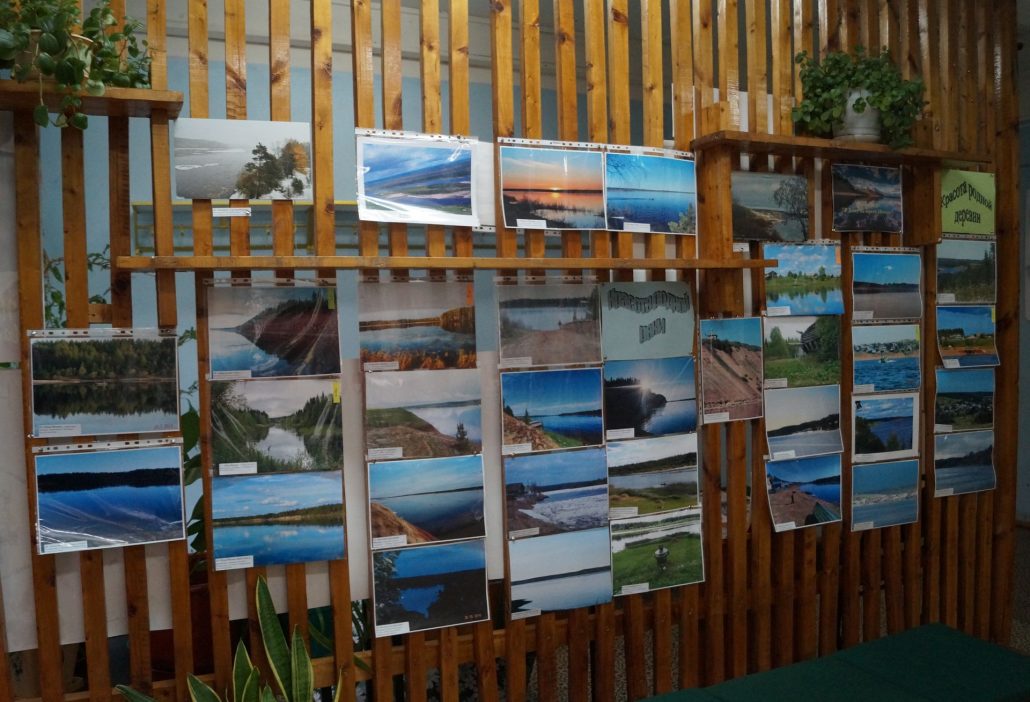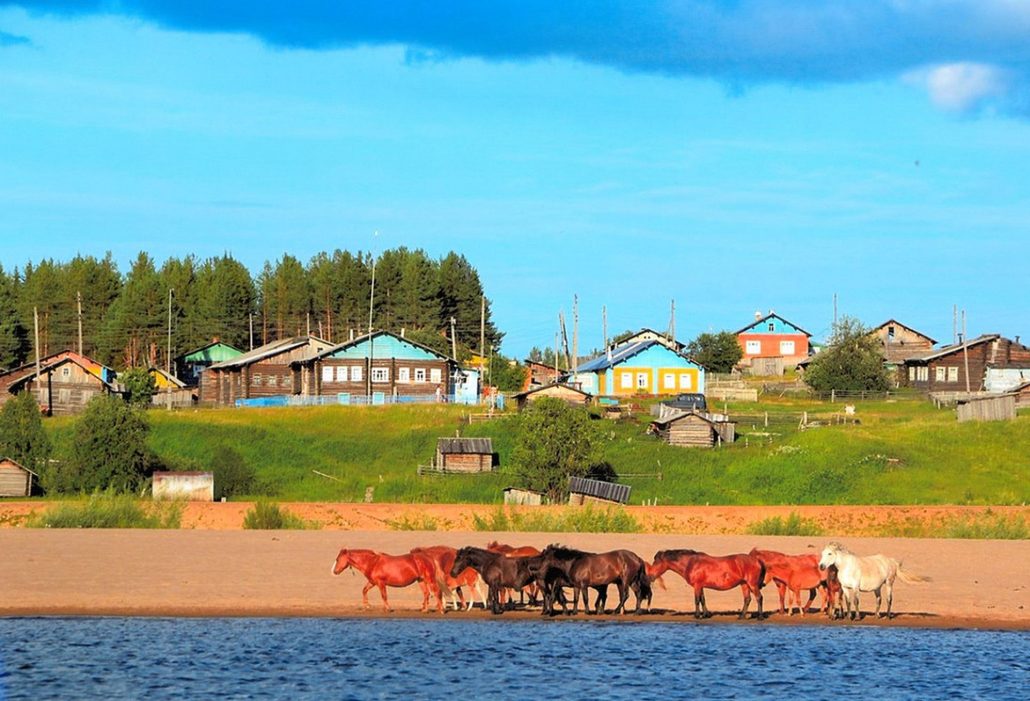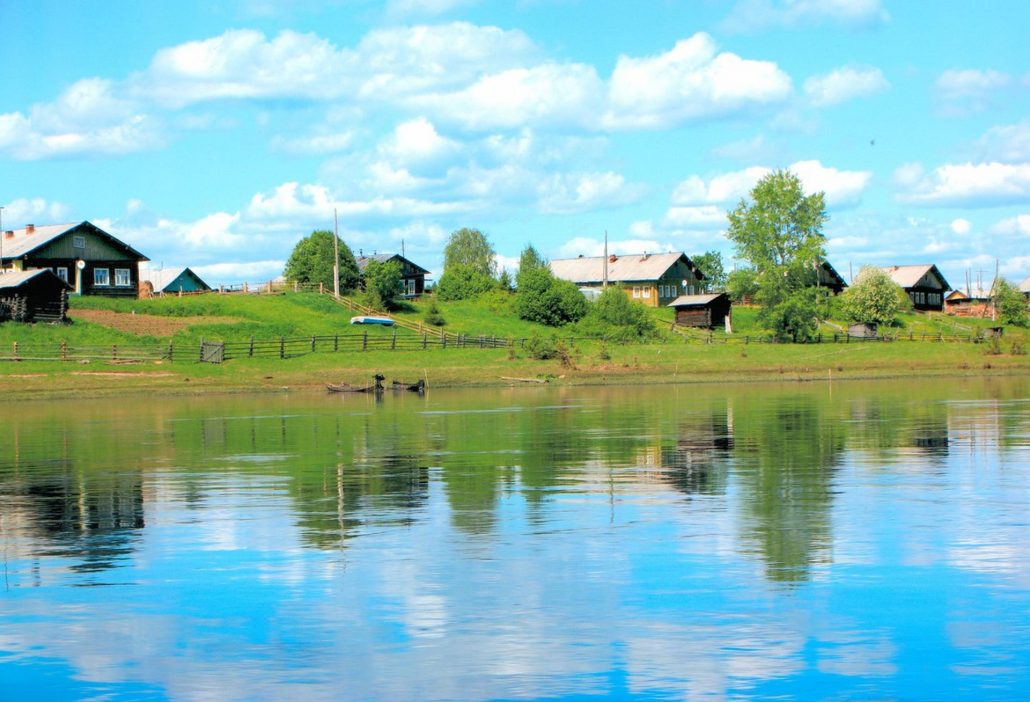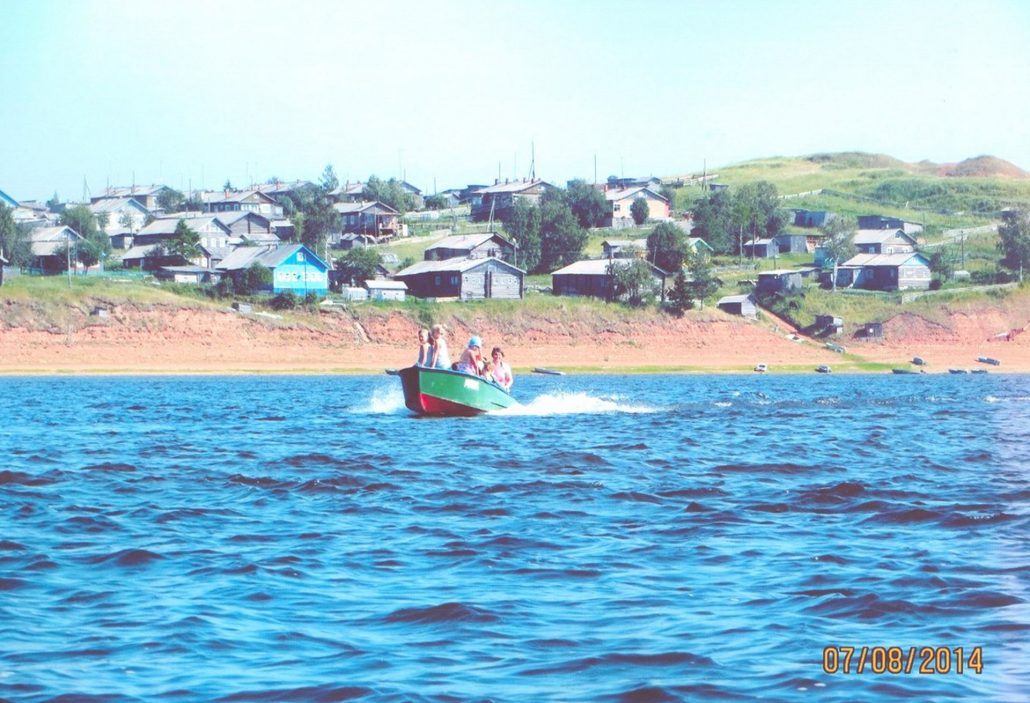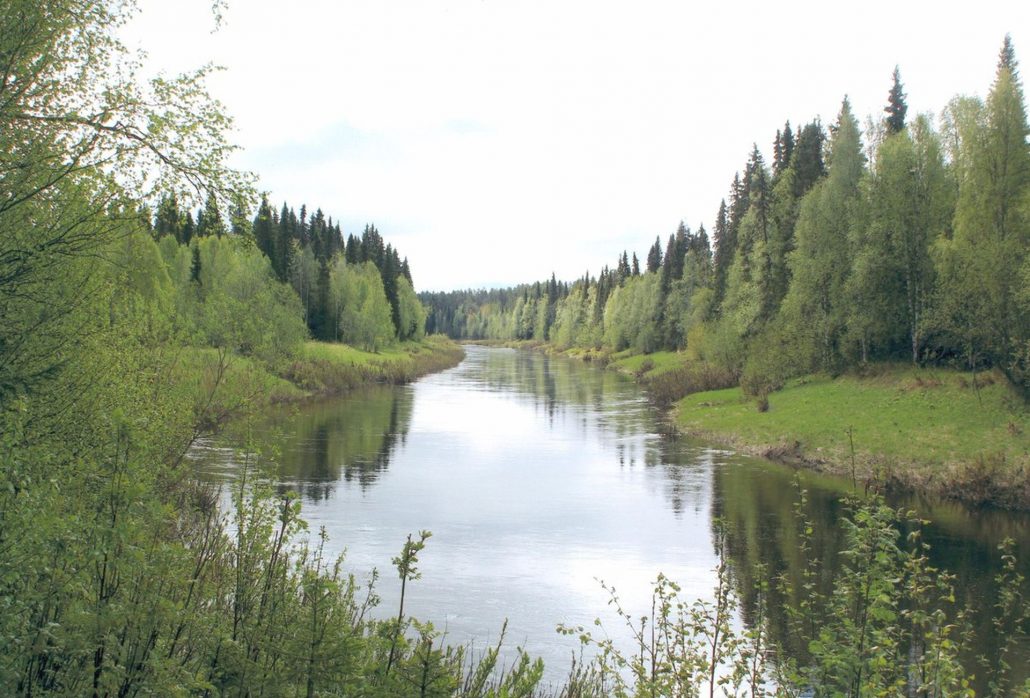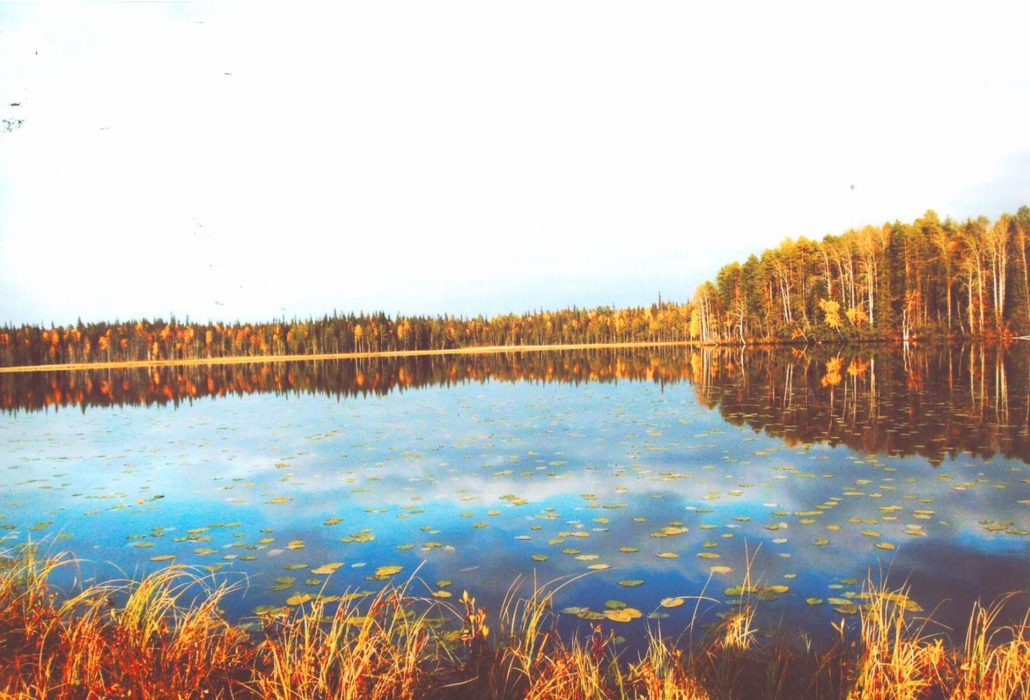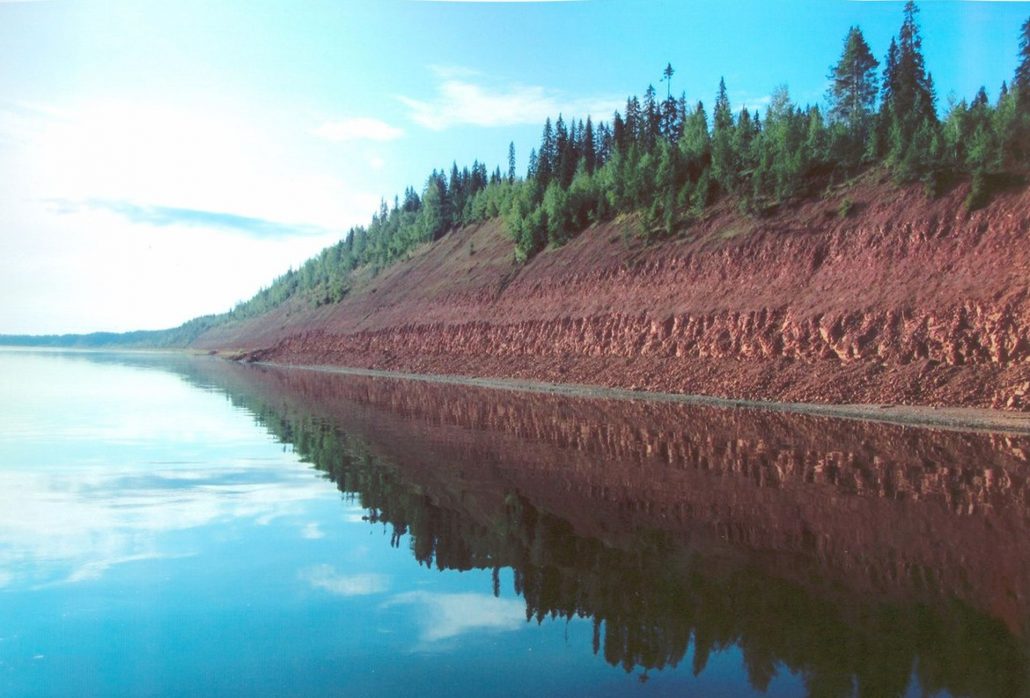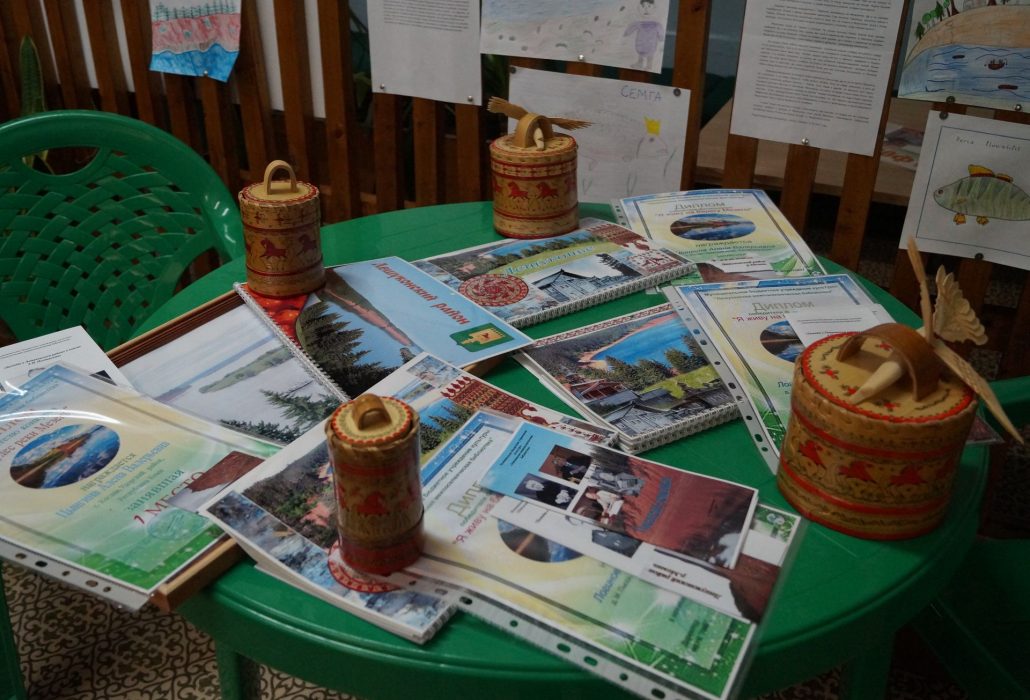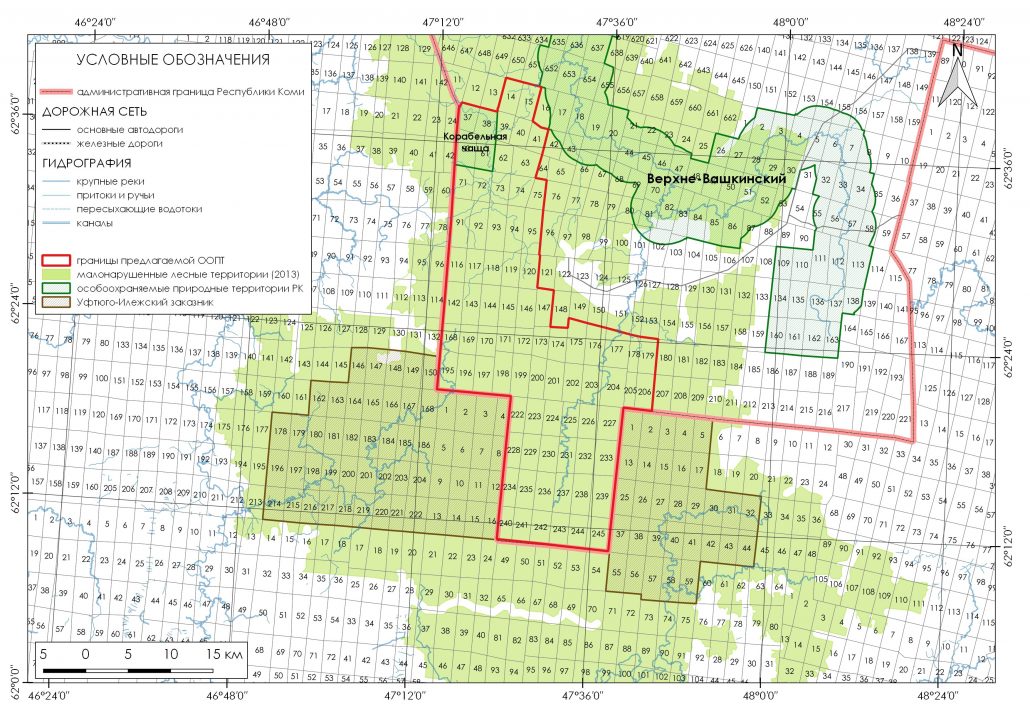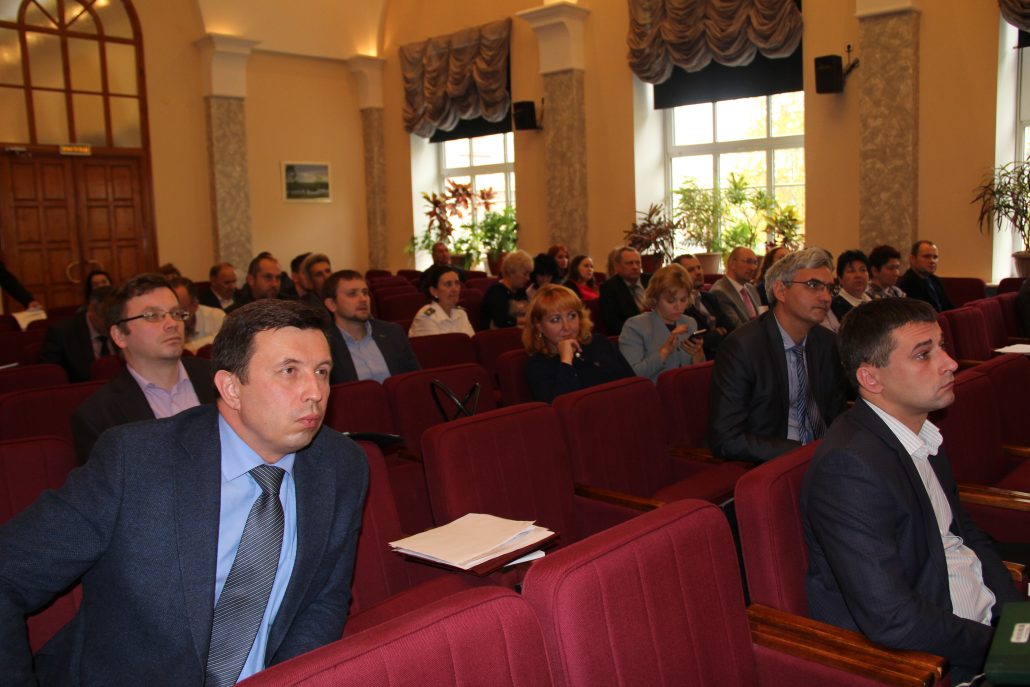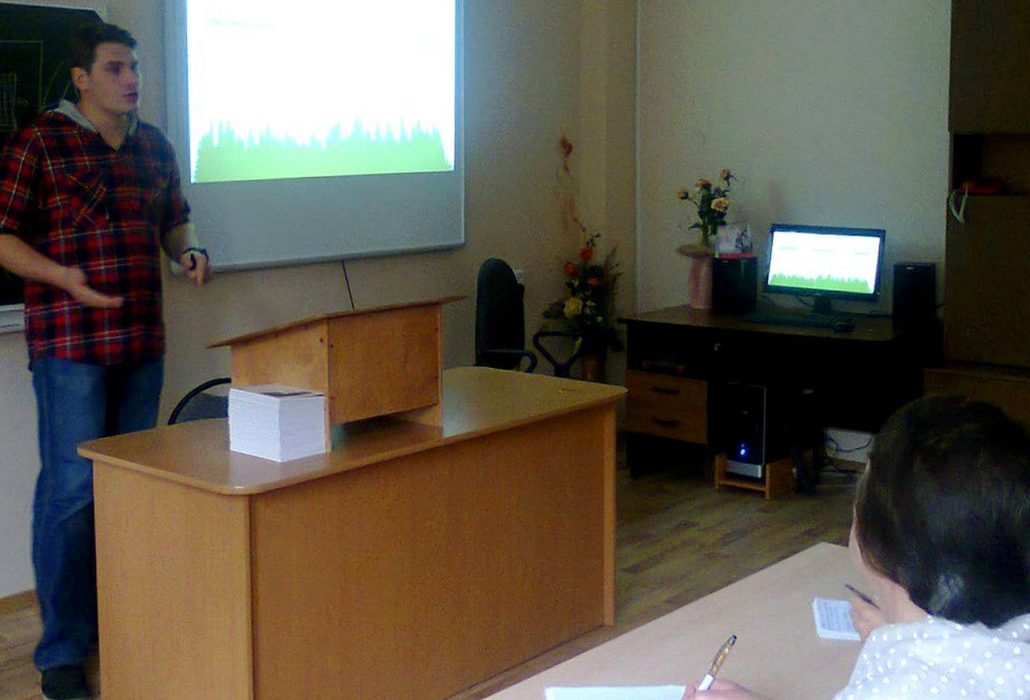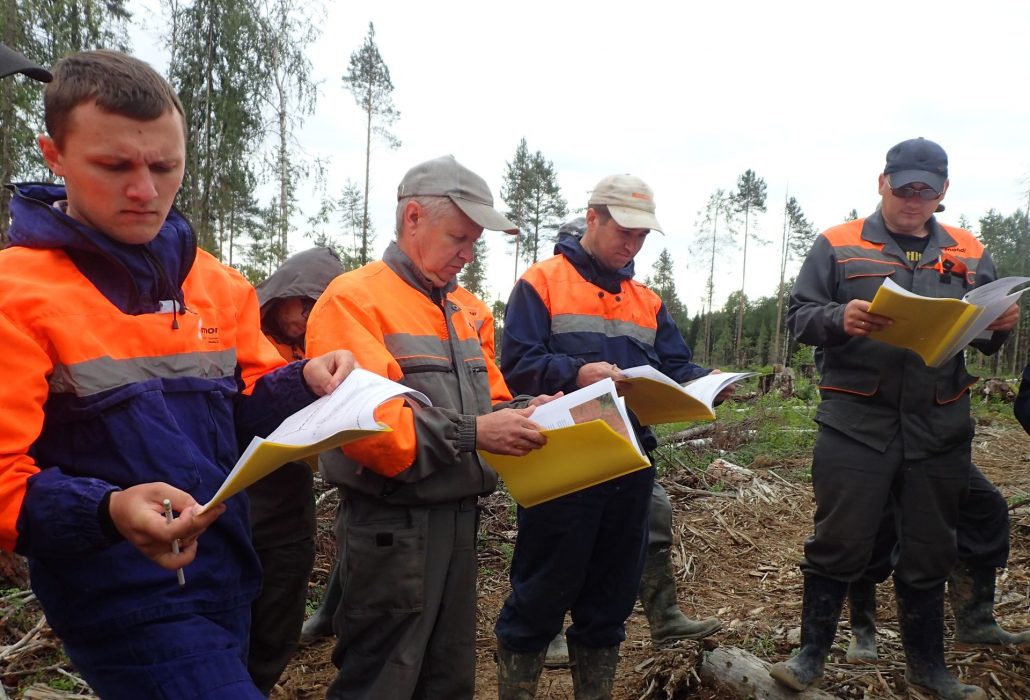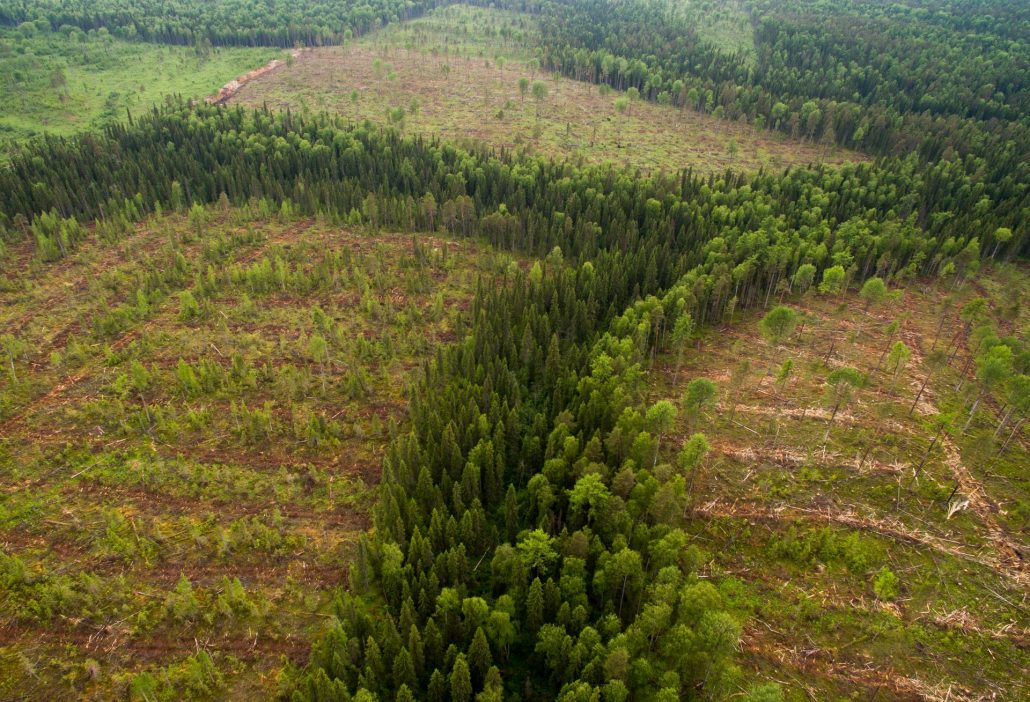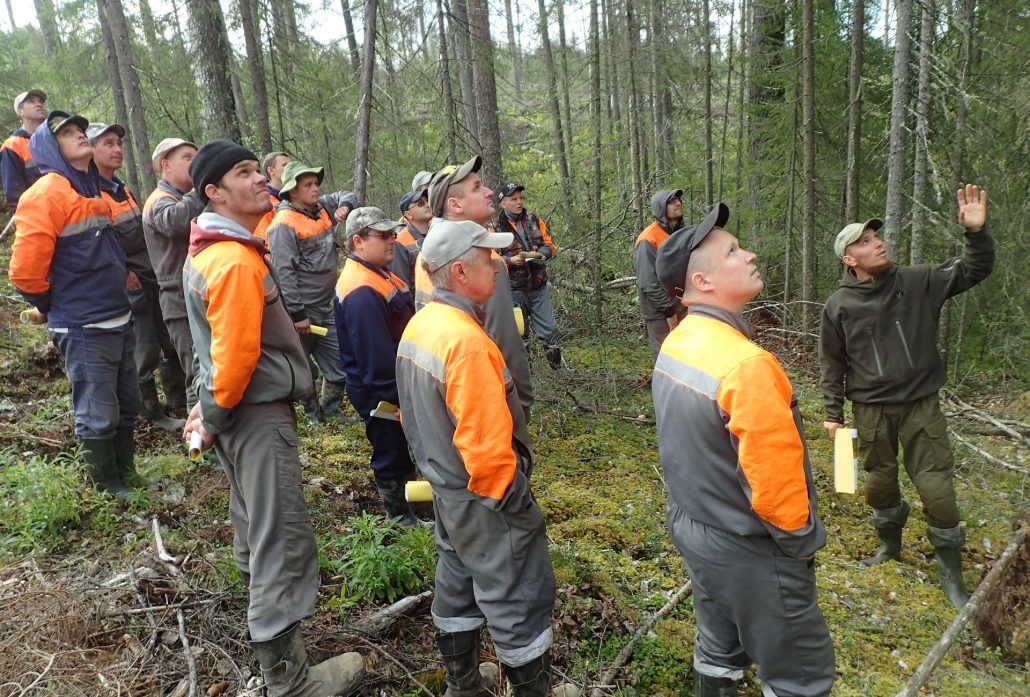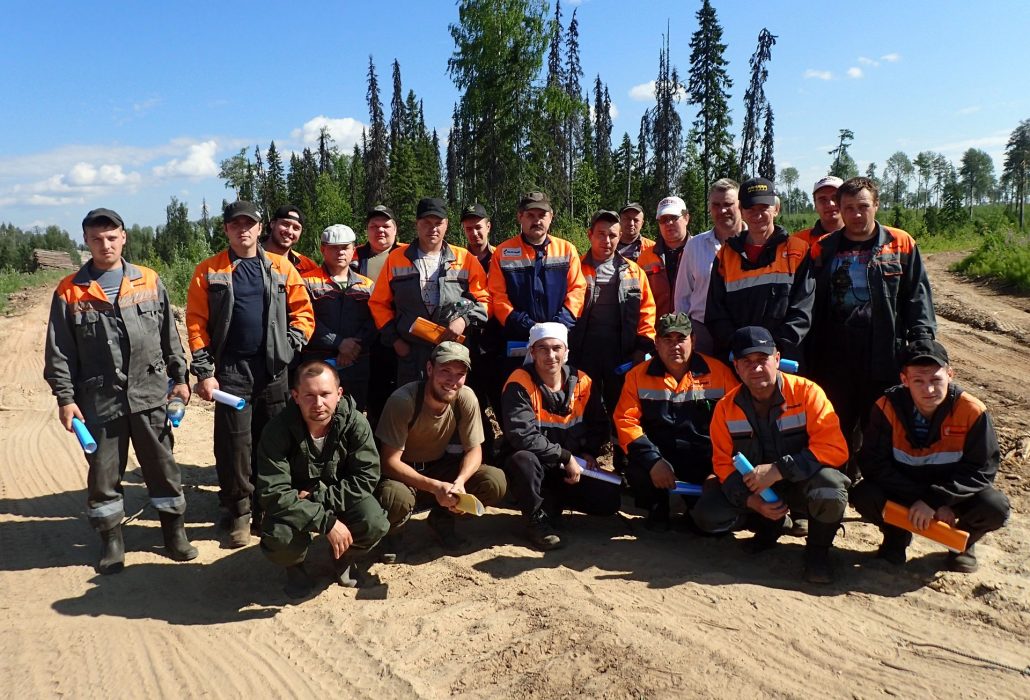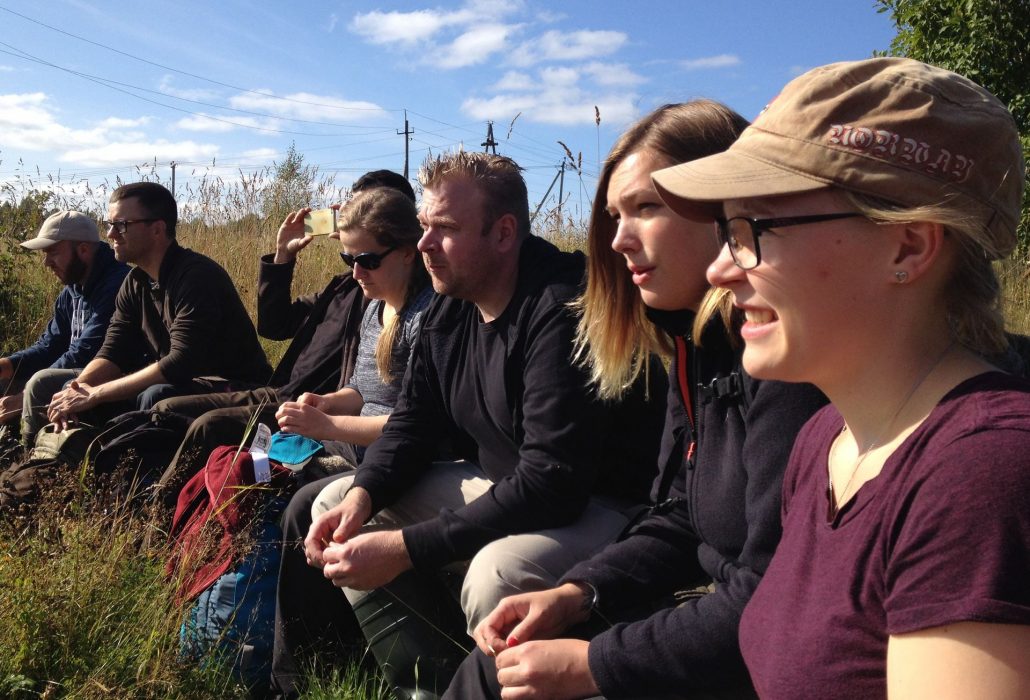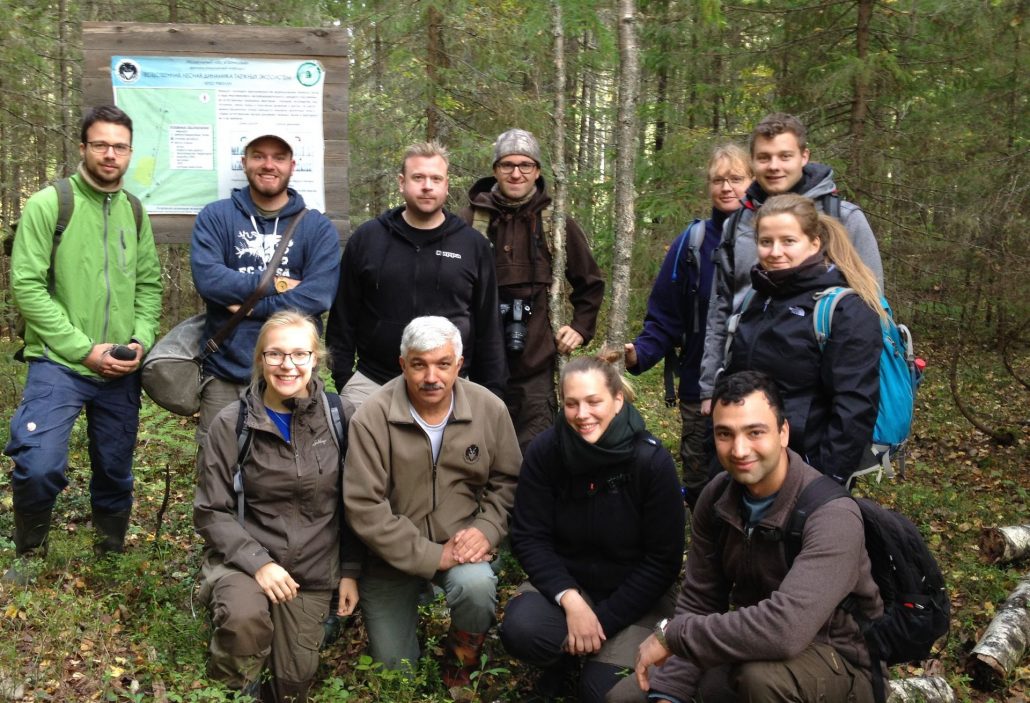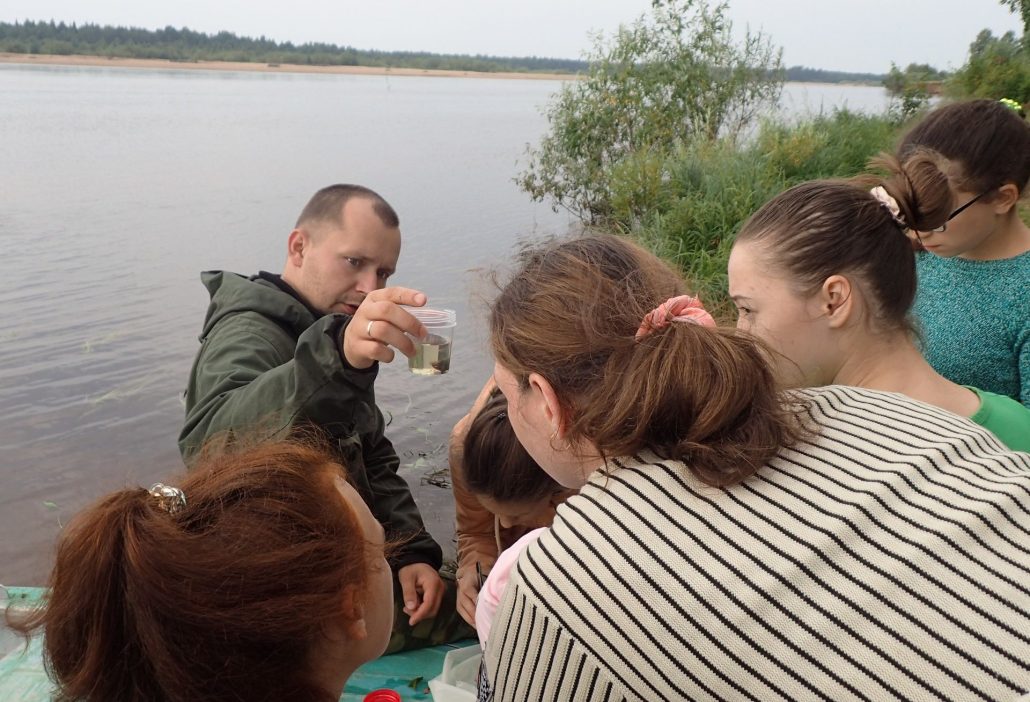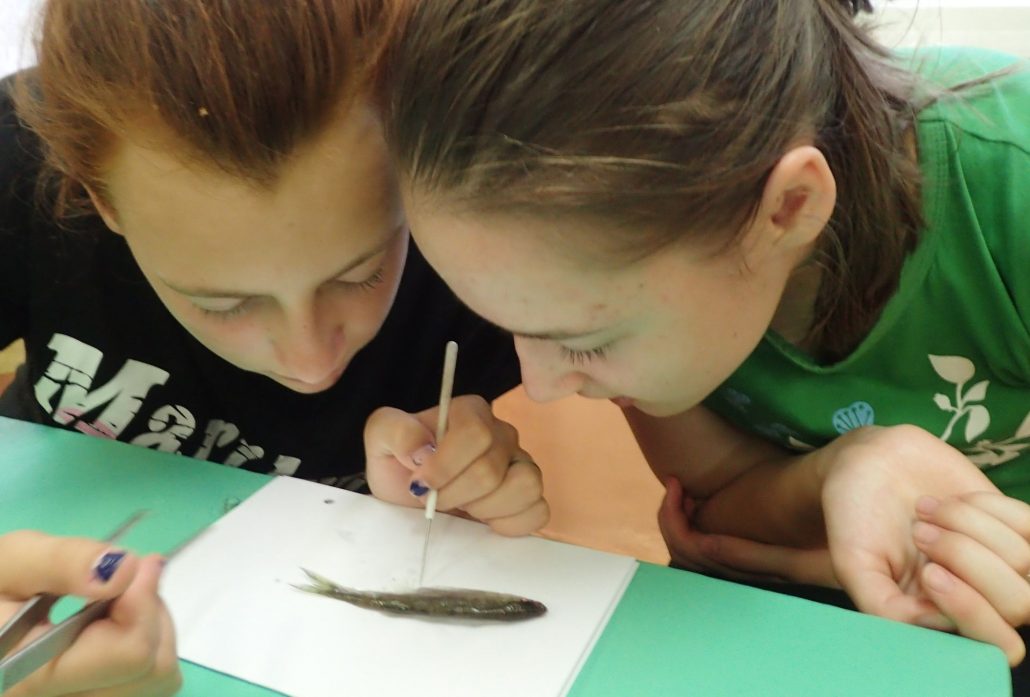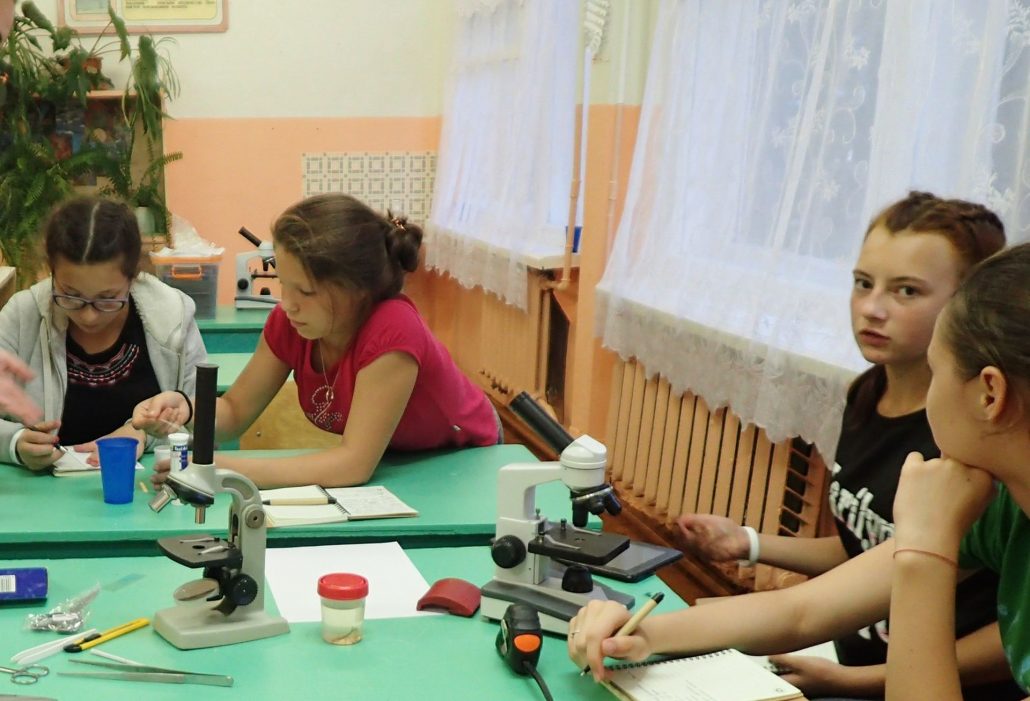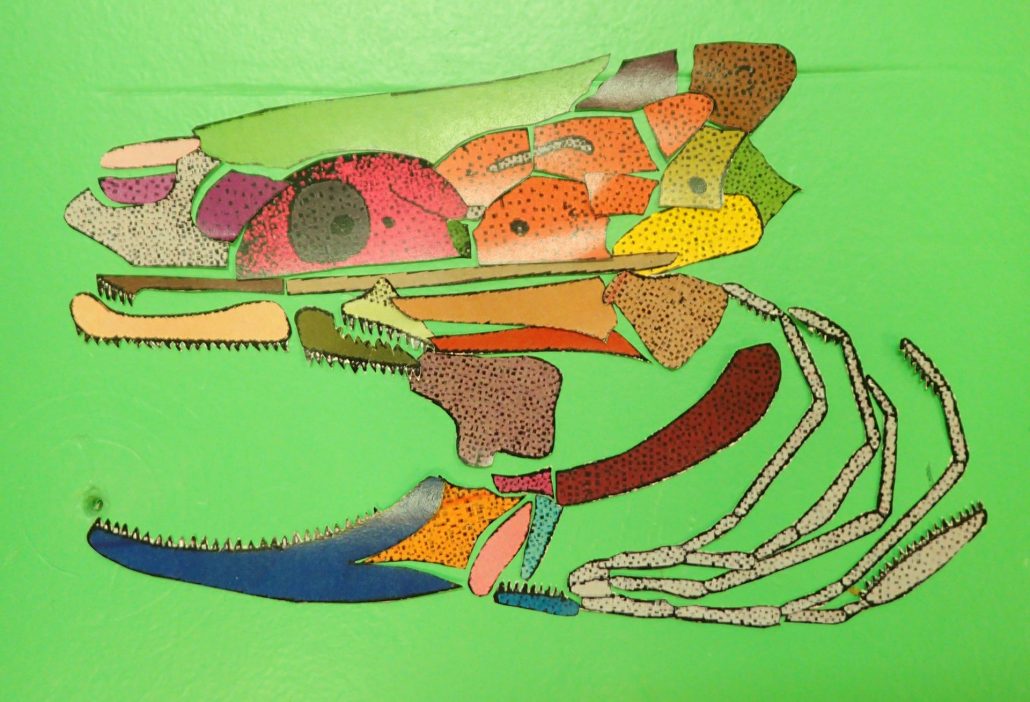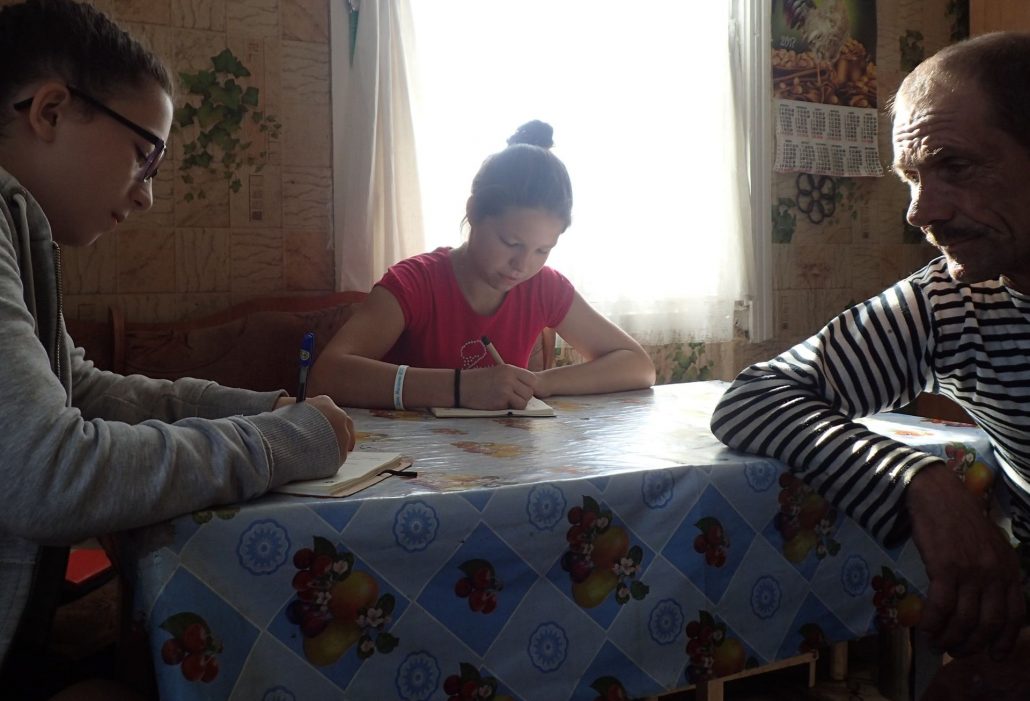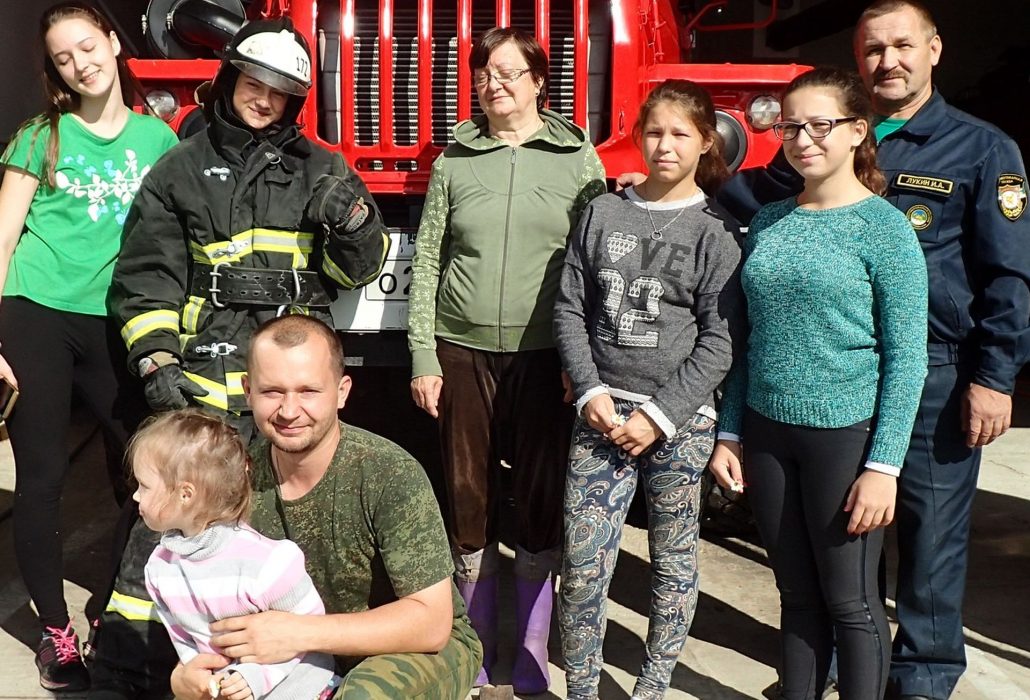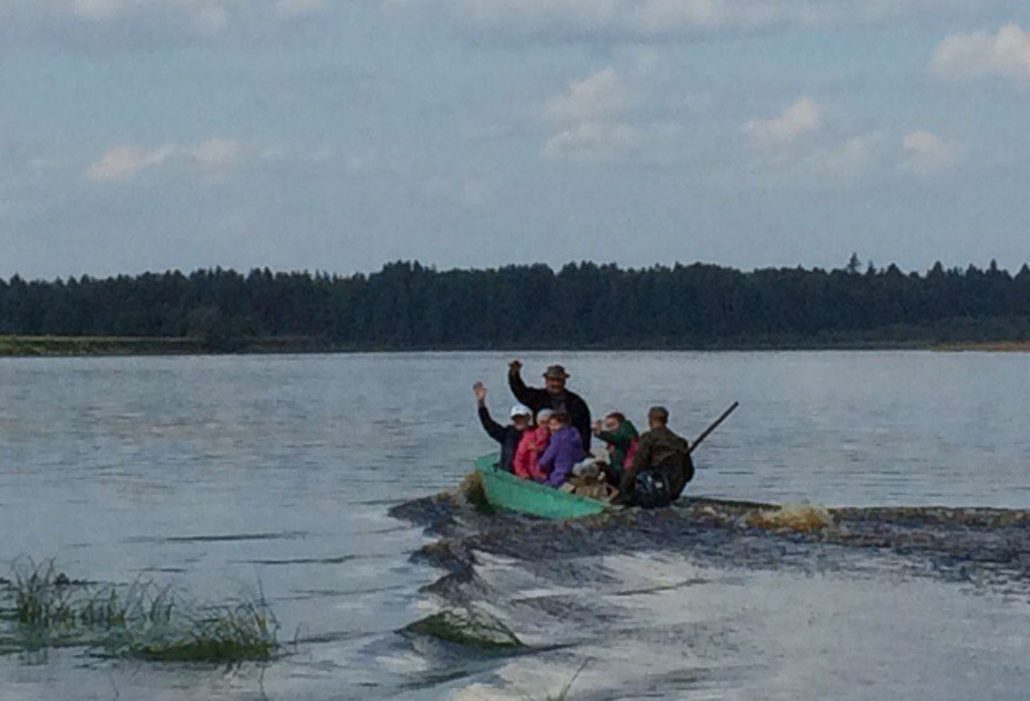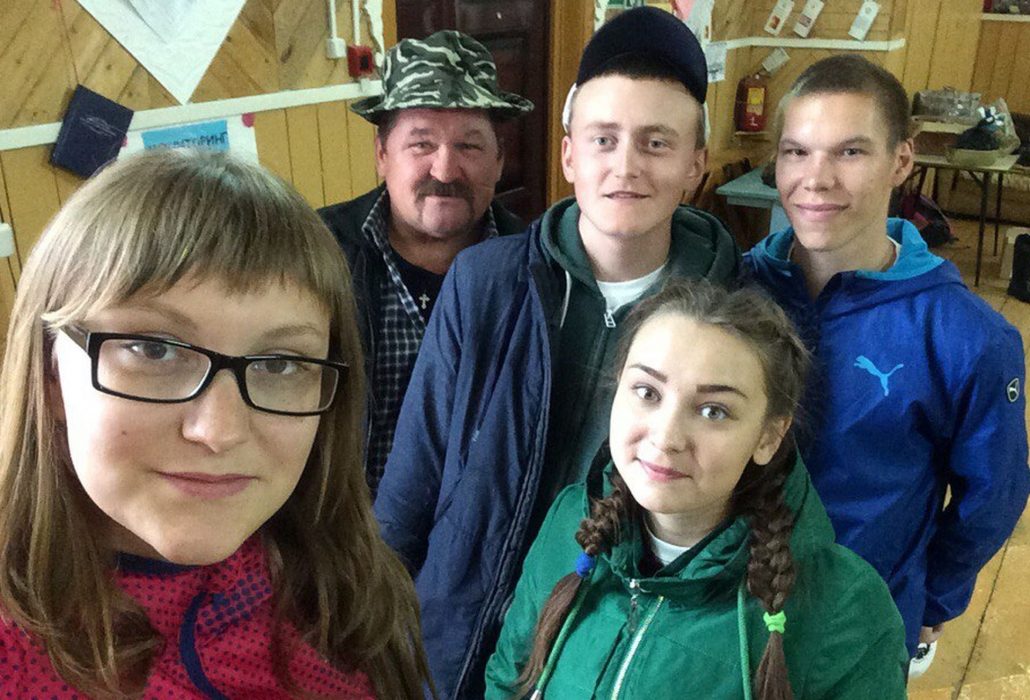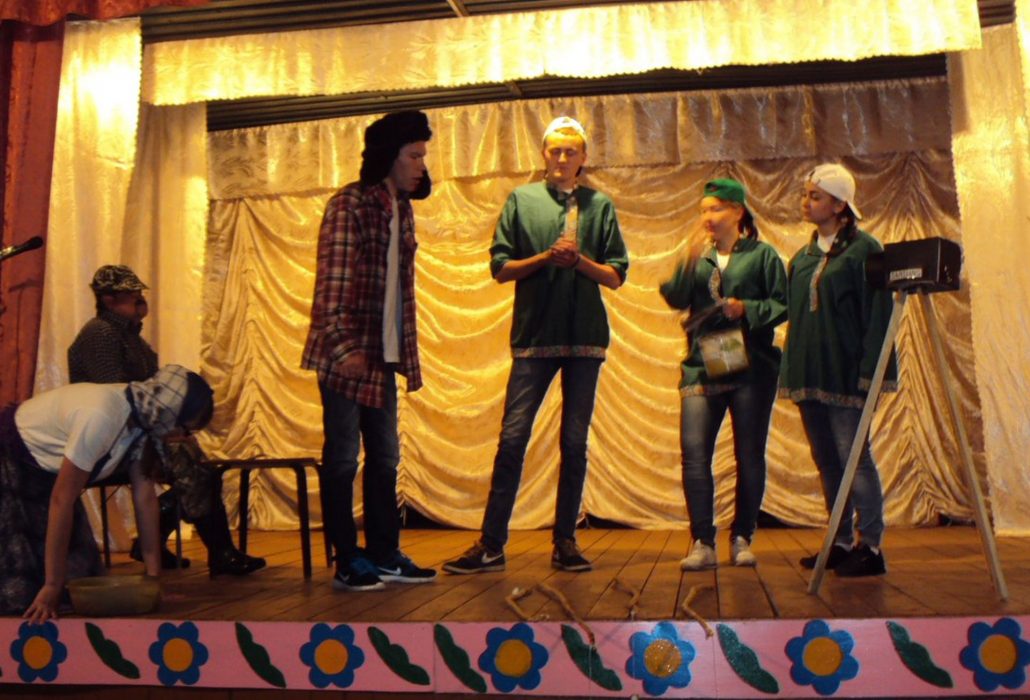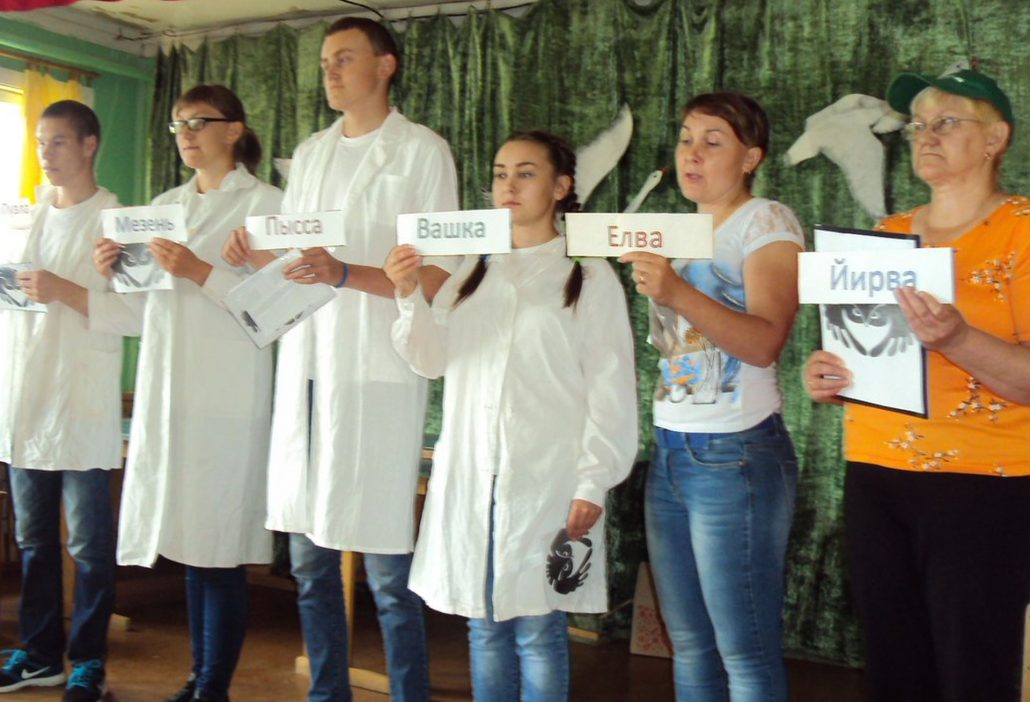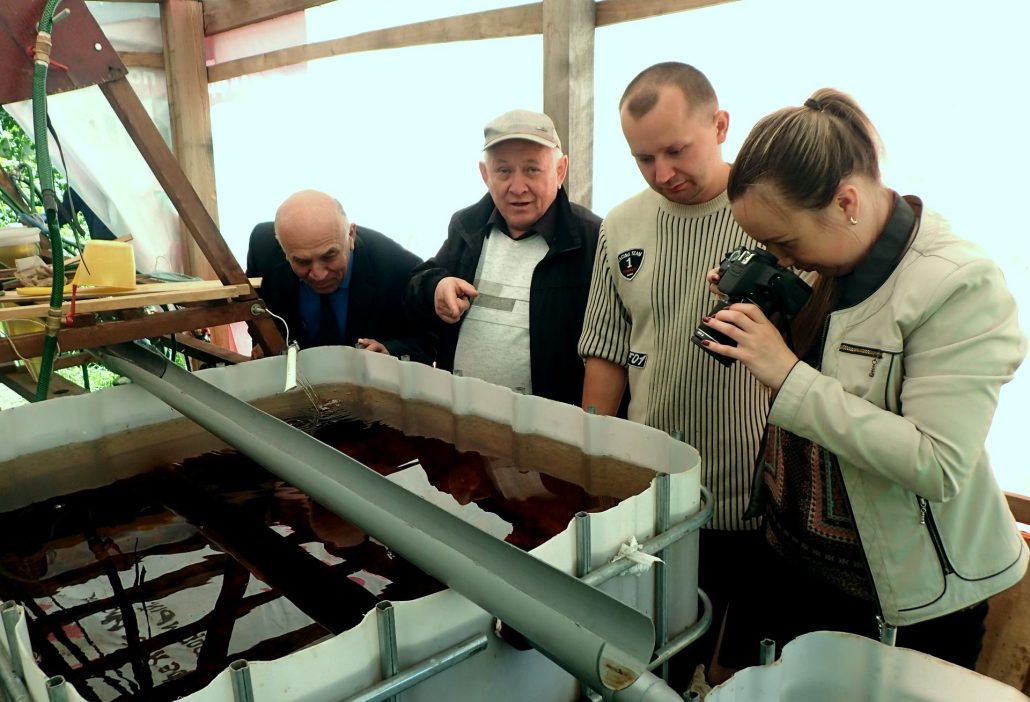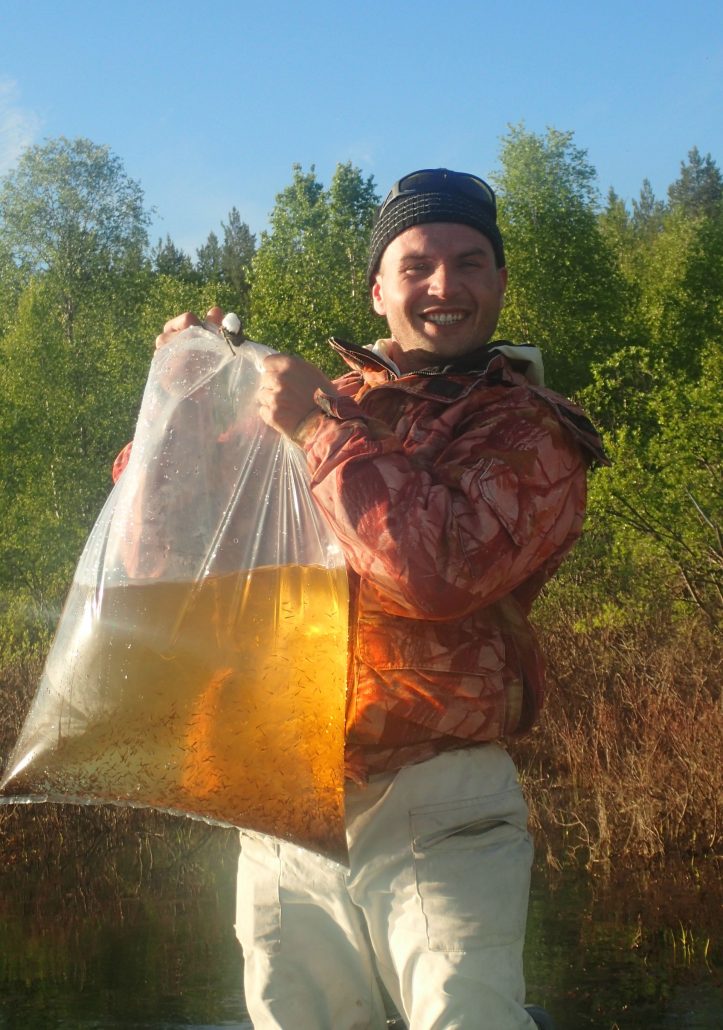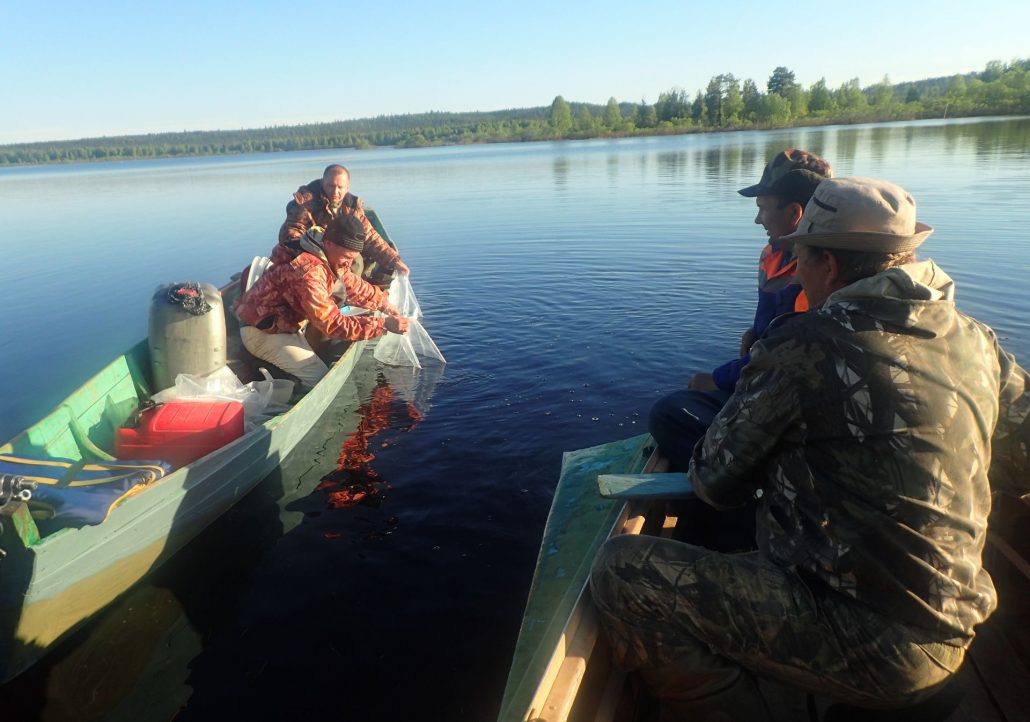Residents of the near Mezen areas gathered in the village of Bolshaya Pyssa, Udora district, to honor the Mezen river on 12 August. Guests from such villages as Latyuga, Malaya Pyssa, Politovo, Patrakovo, Melentyevo, Muchkas, Syolyb, Koslan, and also the old Vozhgora village located in Leshukonye district, Arkhangelsk region, came to the inter-village Mezen Day event arranged for the first time by the Silver Taiga Foundation for Sustainable Development. In total 400 people participated in the celebration.
“For five years already the Silver Taiga Foundation supported by Mondi Group has been implementing the Model River Project – Sustainable Fishery Resource Management in Cooperation with the Local Population in Udora district. Under the project, meetings are conducted at various grounds – at conferences, workshops, the project working group meetings, at AgroUdora cooperative, in rural settlements, and we discuss both on the district and regional levels how we can manage this huge and complex asset (the river length is almost one thousand kilometers) sustainably. The Mezen flows from the Timan rocks to the White Sea. And as the five years passed have shown, there is a certain progress. More and more enthusiasts join us, schoolchildren are also active in the project, and we hope that this event will serve as a uniting start for preservation of the river resources – fish and forest growing by the river,” announced Yury Pautov, the Silver Taiga Foundation director, at the opening ceremony.
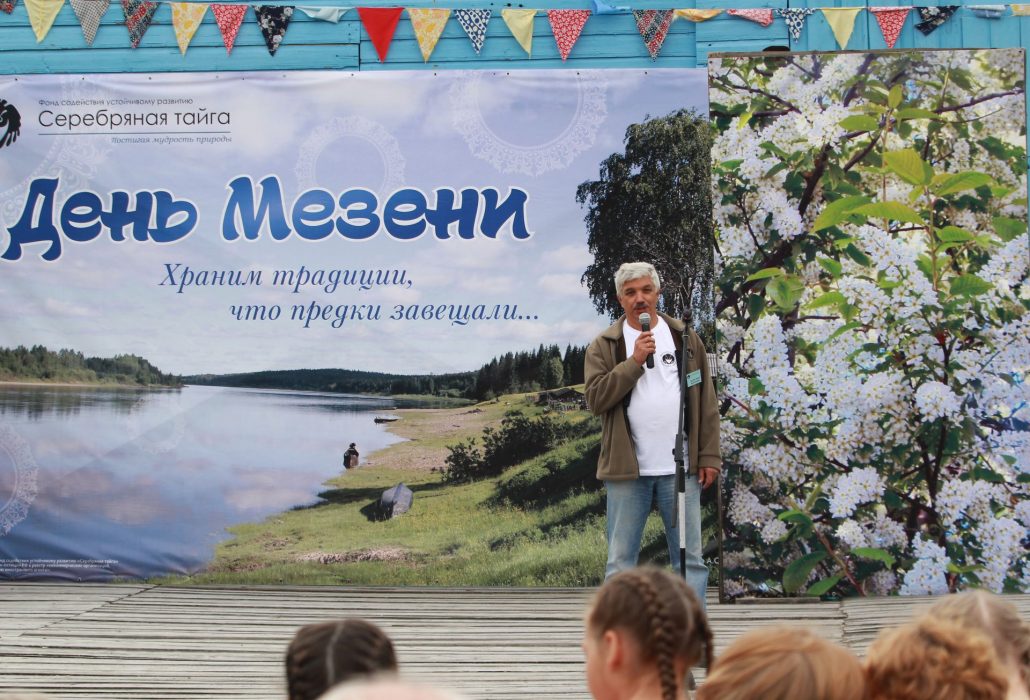
Silver Taiga Director Yury Pautov
The Mezen flows across three districts – Udora district in the Komi Republic, Mezen and Leshokonye districts in Arkhangelsk region. With no good roads available, the river has served as an only means of communication between the residents of near Mezen areas for long. Till the end of the previous century districts had strong ties, people travelled to each other, intercommunicated, made families, while in recent years the connecting bonds have been getting loose.
“We want to help the river to preserve its primeval nature, its beauty, its biodiversity, its most valuable resources. Life shows that human actions do not always contribute to it. And so as each of us understood how important it is, we sometimes need to remind ourselves of the role of the river in our life, give the hard-working, beautiful, fostering river what it deserves… Officially speaking, the main objective of the event is to draw the attention of the public and authorities to the issue of the need to preserve the resources of one of the most important rivers of the North. The river knows no borders, so we can only conserve its assets altogether in mutual understanding and cooperation with each other. It is not possible to reproduce and multiply fishery resources locally, in one place only, the environmental bodies and local communities of the three districts have to act jointly. So, in order to unite the efforts of all stakeholders this celebration was organized,” deputy director of the Silver Taiga Foundation Valentina Semyashkina explained.
The program of the festival also included the environmental education part, for example, a lecture on ichthyology, regional study quiz, intellectual game What? Where? When?. The lecture by Nikolay Shilov, coordinator of the Model River Mezen project, unexpectedly raised much interest – there were a lot of those who were willing to learn the details of the life of the Mezen fish population.
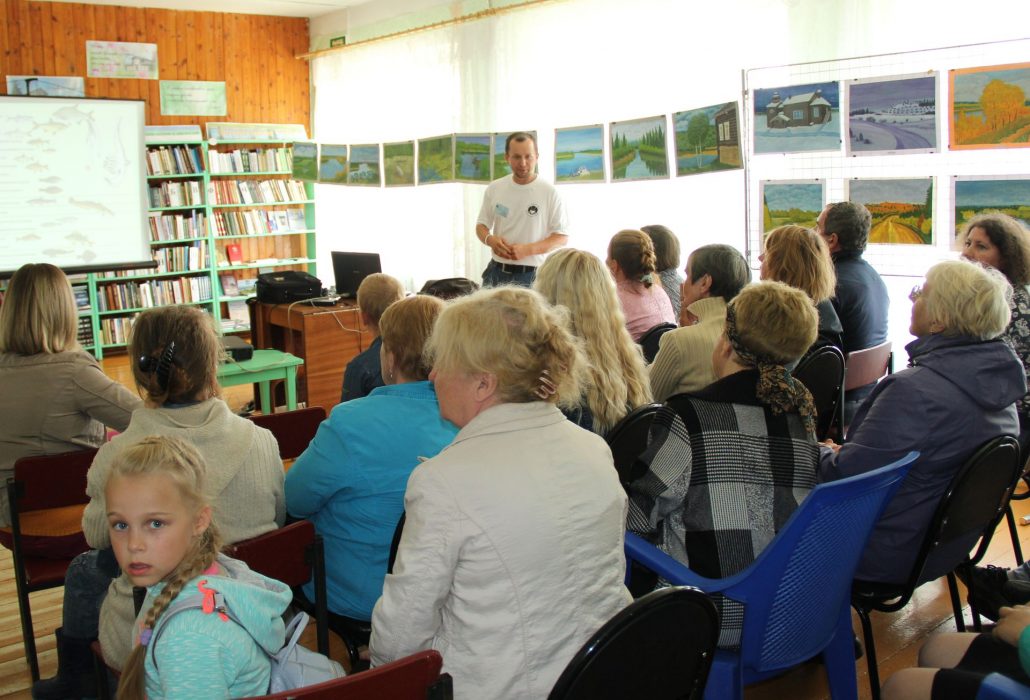
N. Shilov is giving a lecture
A lot of village residents came to support their fellow villagers at the What? Where? When? game. The Model River Mezen project working group played against the local experts. To the great joy of the experts and sadly for the working group members, the game was won by Bolshaya Pyssa residents. The best player was acknowledged to be Mikhail Selivanov, and the best question was asked by Alexey Vurdov, who got a prize for it.

Mikhail Selivanov was considered as the best player of the “What? Where? When?” game
“In near Mezen settlements the many centuries old culture – traditions and customs, folklore and cuisine, songs and dialects – are still preserved. And today hardworking and talented people – craftsmen, who know and love their native land – live near the Mezen. So, this event is a good opportunity for them to show their results, and for us to thank them. It is primarily a brotherhood celebration,” Alexey Vurdov shared his impressions.
At the Mezen Day, the Udora writer acted in an unusual role and demonstrated to the visitors the recipe of a traditional Udora dish “lul” normally offered to the dearest guests on most important holidays. Only selected guests could try the delicacy, but everyone else was treated with the fish soup cooked according to old Mezen recipes. The fish soup was cooked in a big pot at the most slightly spot, and having absorbed the smoke of the fire it was extremely tasty.
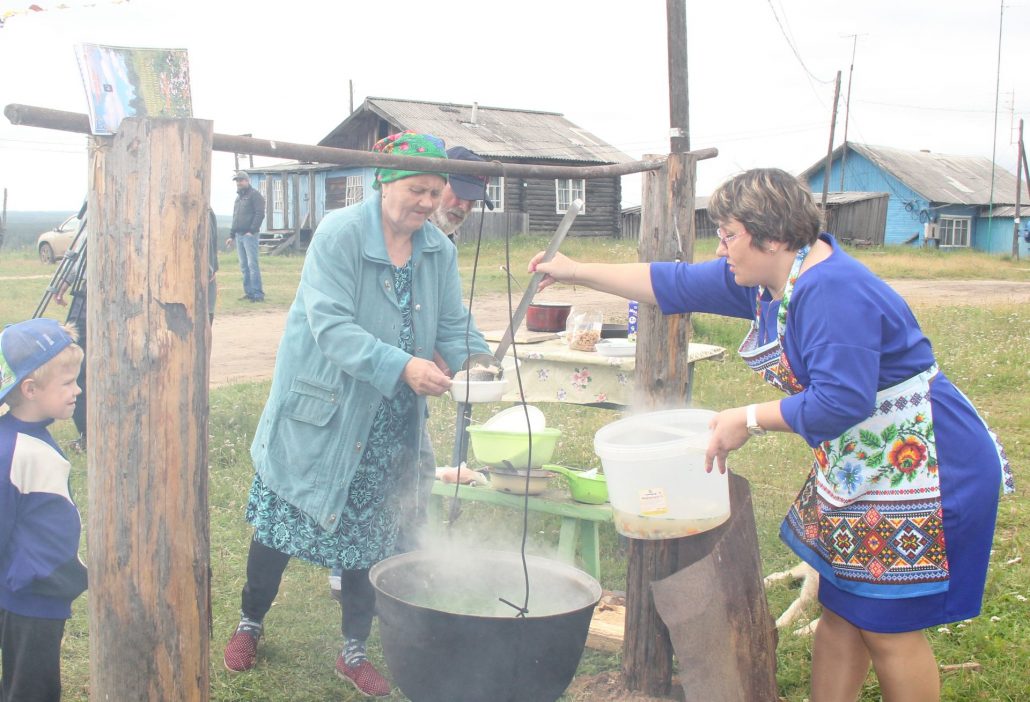
Tasting the fish soup
The regional study quiz was conducted at the ground near the exhibition of books with contents related to the Mezen area. It turned out, the Udora residents do not know their native area well, and the facts they heard at the quiz show were a discovery for many of them. The right answers were awarded with tokens, and those who had most of the tokens received prizes – tea mugs with the same picture displaying the landscape of the area as was on the banner decorating the scene.
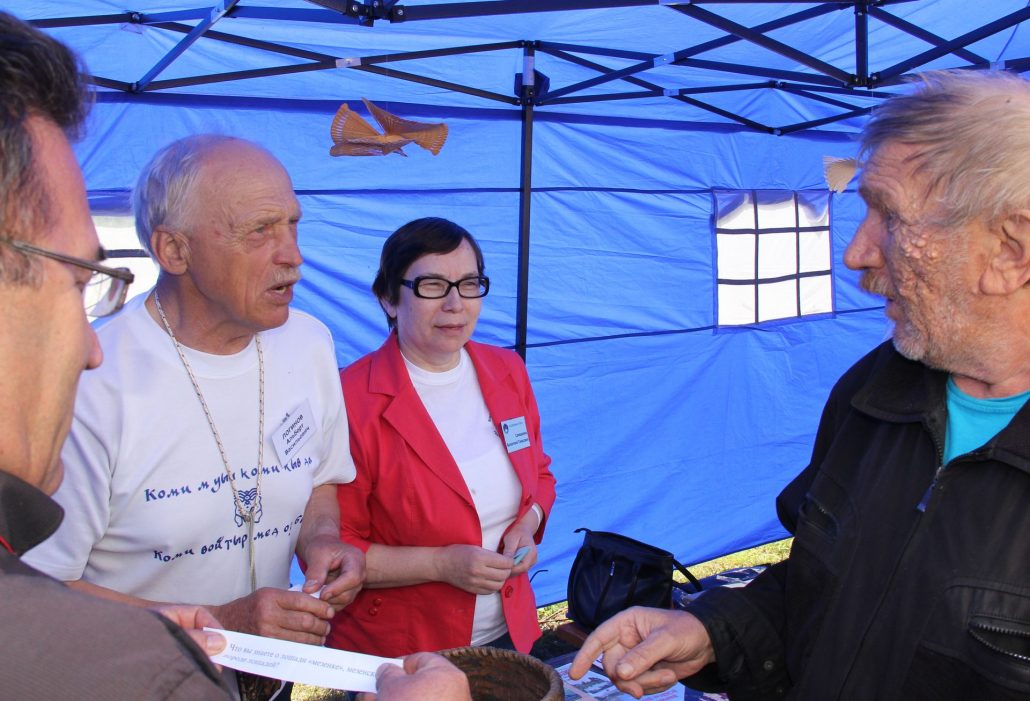
Regional natural history aroused a great interest among the participants
In a tent camp near the Bolshaya Pyssa Recreational Center local craftsmen Vladimir Bushenev, Oxana Baklanova and Nikolay Matveev conducted traditional arts and crafts workshops. Adults and kids were obsessed with the bark pipe making process, they painted wooden plates with traditional Mezen ornaments, and the youngest participants colored fishes made of plywood with paints.
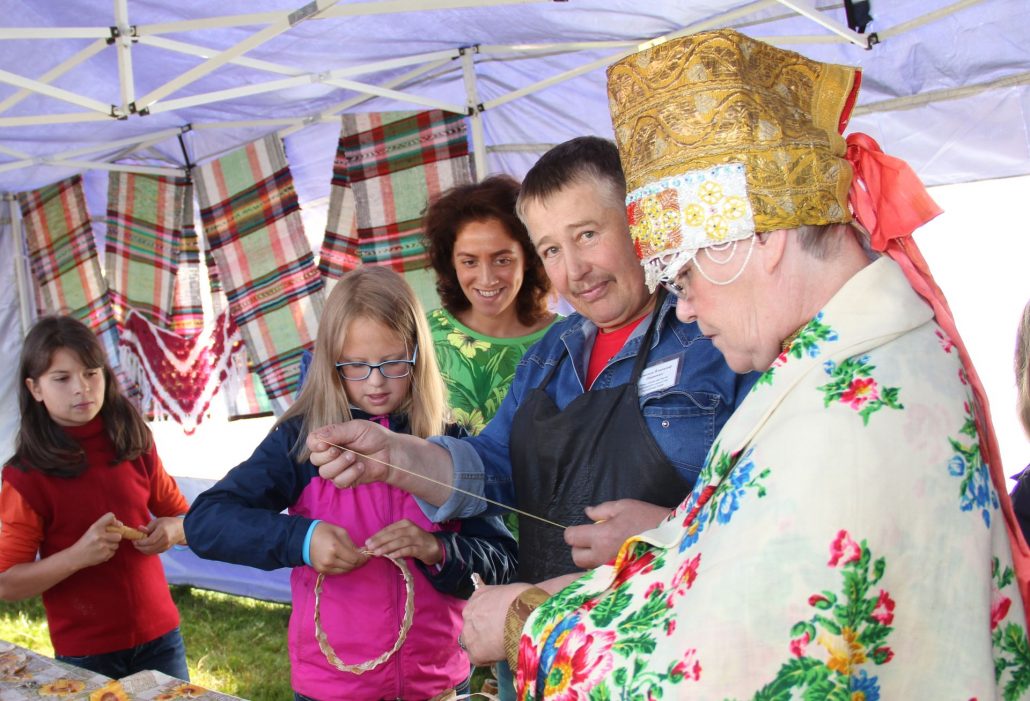
Vladimir Bushenev is giving a master class
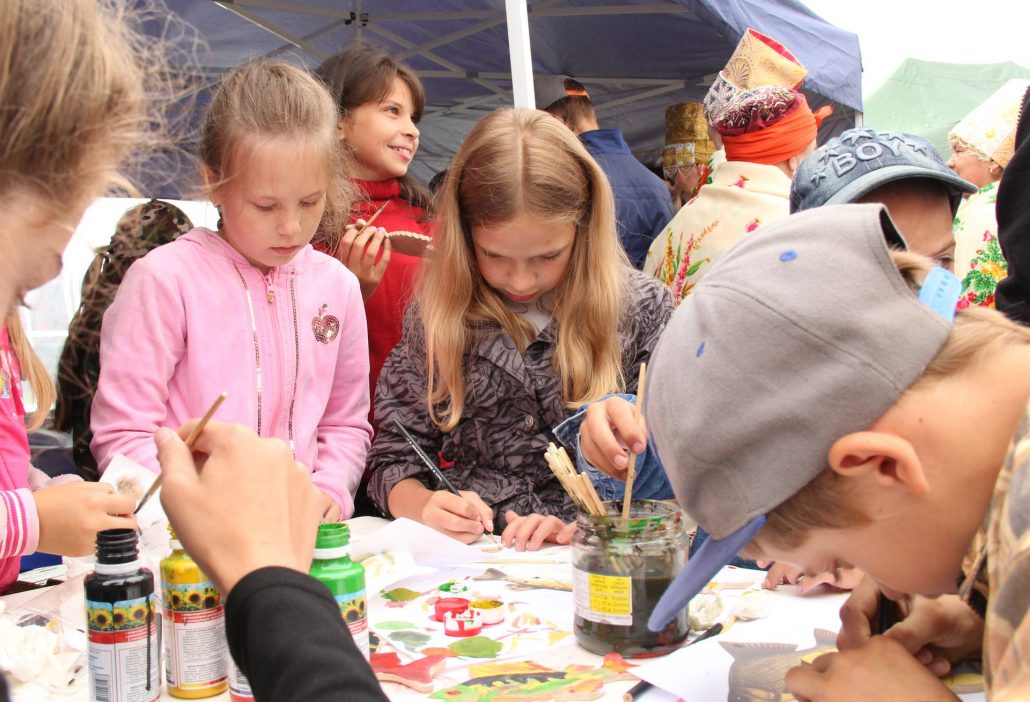
The young participants are in the painting class of N. Matveev
During the festival, meetings with Udora poets Anastasia Busheneva, Nina Obreskova and Svetlana Govorukhina were arranged in the hall of the Pyssa library.
The “newly-crowned” citizen of honor of Udora district Albert Loginov (he got the certificate validating the title right at the opening ceremony of the inter-village celebration from Nikolay Zhilin, head of the district administration) gave a master-class on how to make a Mezen boat, which is called “zyryanka” in Arkhangelsk region. The structure of the boat is known to be referred to the Vym type. There are almost no craftsmen able to build such a boat by the Mezen left, and the only one who knows the secrets of the ancient craft in the village is Albert.
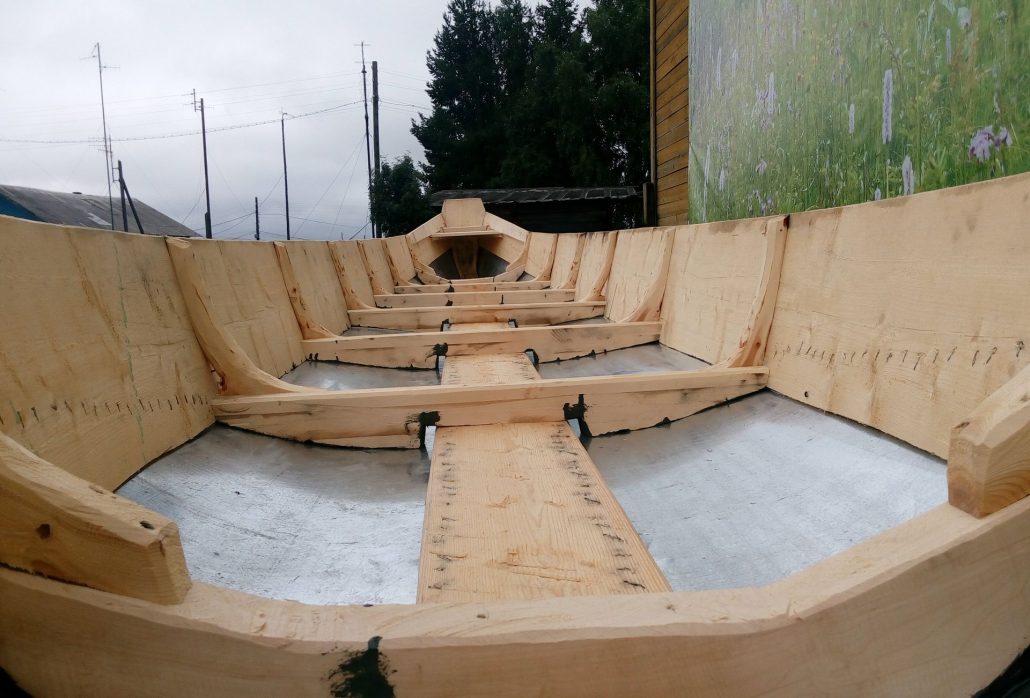
The Mezen boat made by Albert Loginov
Also, the exhibition of the paintings by Nikolay Pavlov, born in the village of Latyuga, was opened at the festival. The works depict natural landscapes well known to the local residents, and each of the visitors to the exhibition was eager to compare the painter’s vision with own impressions. The exhibition made them proud of their native land. Irina Tarabukina, the painter’s daughter living in Syktyvkar, also came for her father’s exhibition opening. She told the fellow villagers about her father’s art, his life and the history of some of his paintings.
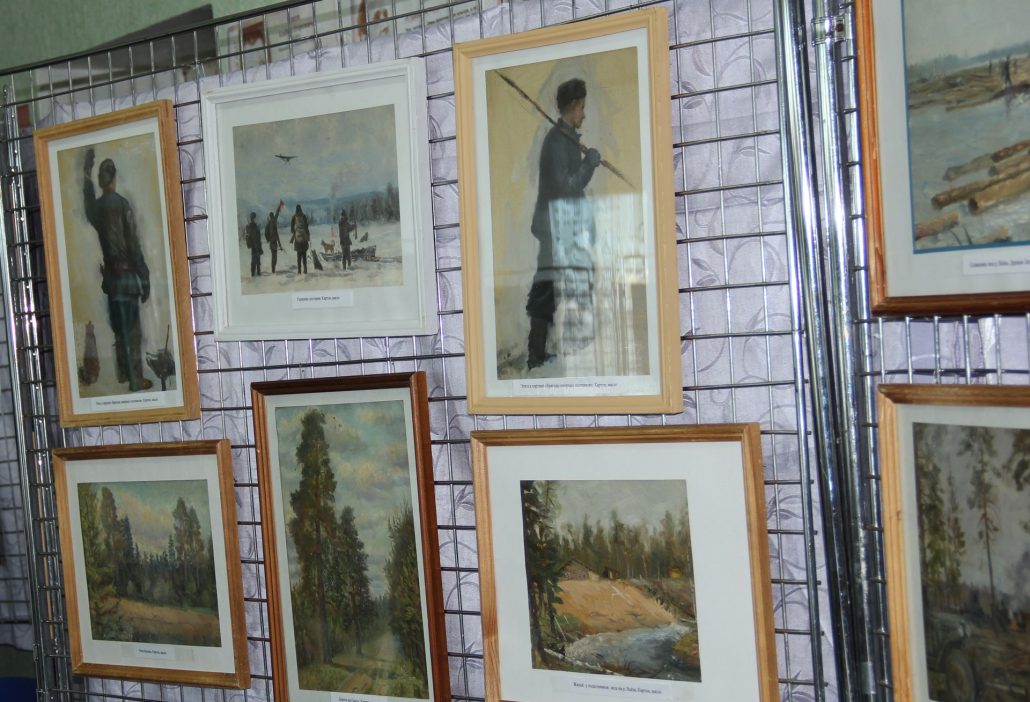
The paintings of Ivan Pavlov – a native of Udora (Latjuga village)
Here, the visitors could observe the paintings by Nadezhda Loginova, who spends each summer in her native village Bolshaya Pyssa.
At the end of the celebration, visitors could enjoy the performance of folk bands – Vozhgora folk choir from the neighboring Arkhangelsk region, Poloznicha artist band from Syolyb, folk band Zabavushka from Politovo, folk choir Lovya Va from Koslan, dance band Assorti and folk band Sostom Yol from Bolshaya Pyssa.
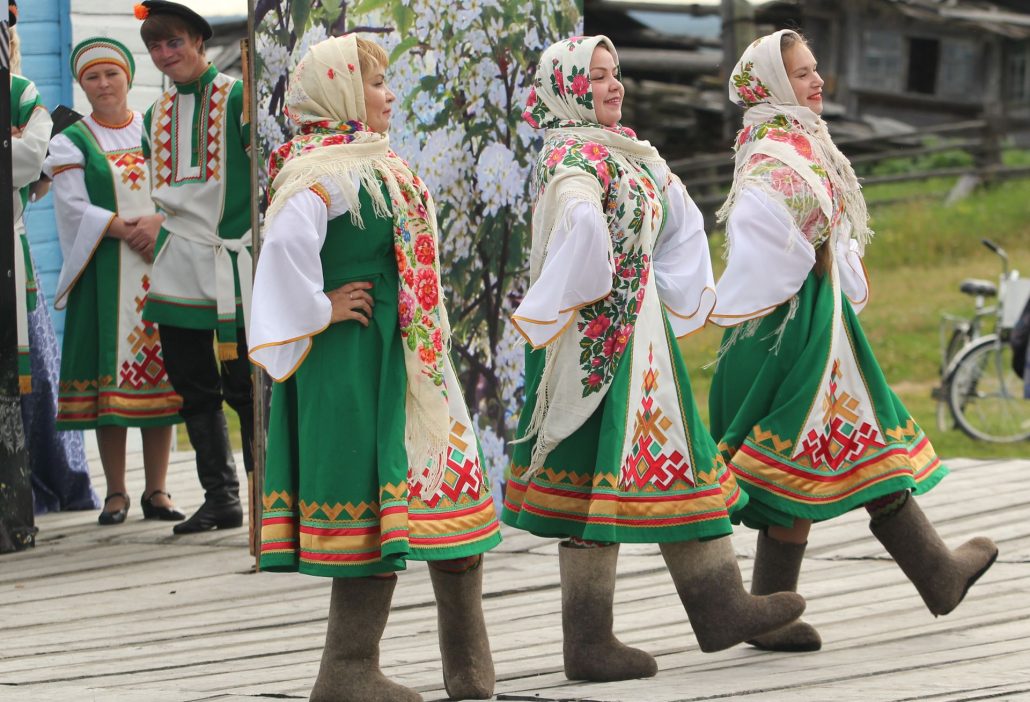
The local amateur-talent group
Almost all organizations and institutions of the village, including the administration, Recreational Center of Pyssa, Pyssa Secondary School, Udora Centralized Library System, Veterans Council and Women Council of Bolshaya Pyssa supported actively the festival facilitation.
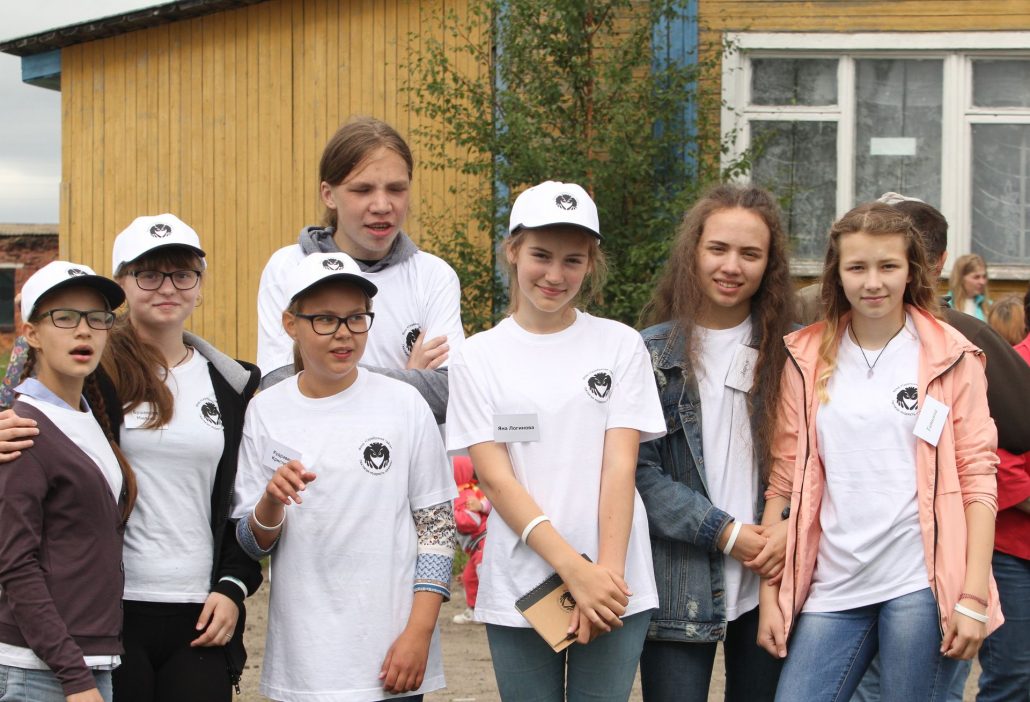
The volunteers assisted during the event
***
Mezen is one of the cleanest rivers in Europe. Its length from the riverhead to the estuary is 966 km. Mezen is the second river after the Northern Dvina in terms of the amount of water it brings to the White Sea. On its way to the White Sea the Mezen is nurtured by 15,187 rivers and streams. The bed of the river sometimes narrows and sometimes widens. The width of the river – 15 meters initially – increases to 40 meters gradually.
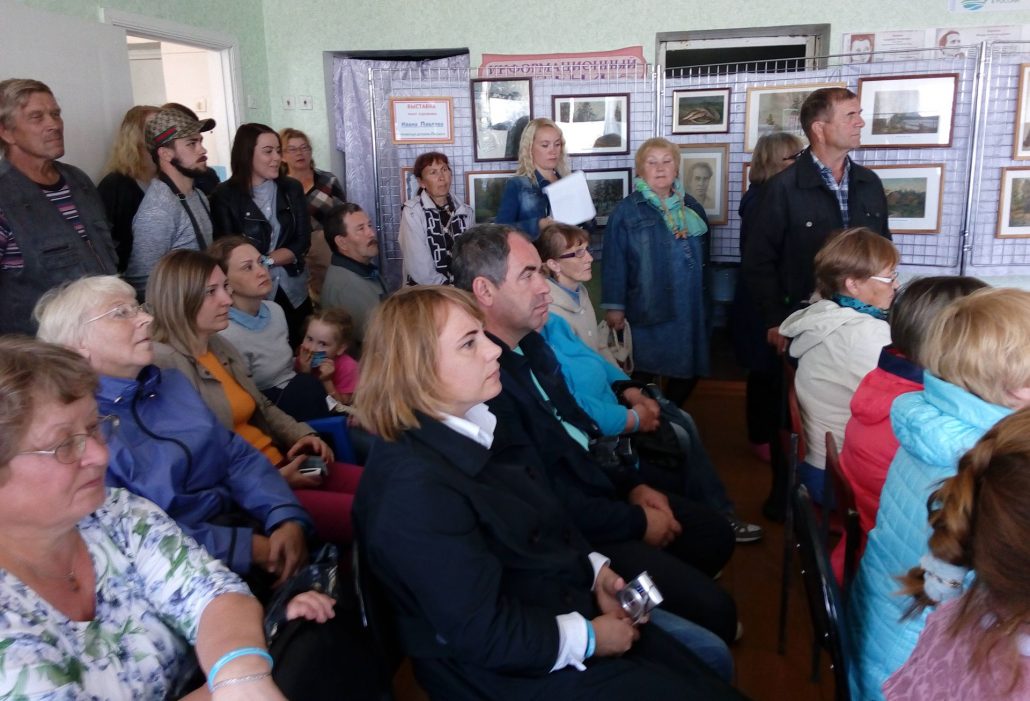
The local population want to learn something new about the native region

The guests have come from all over the region

The greatest event
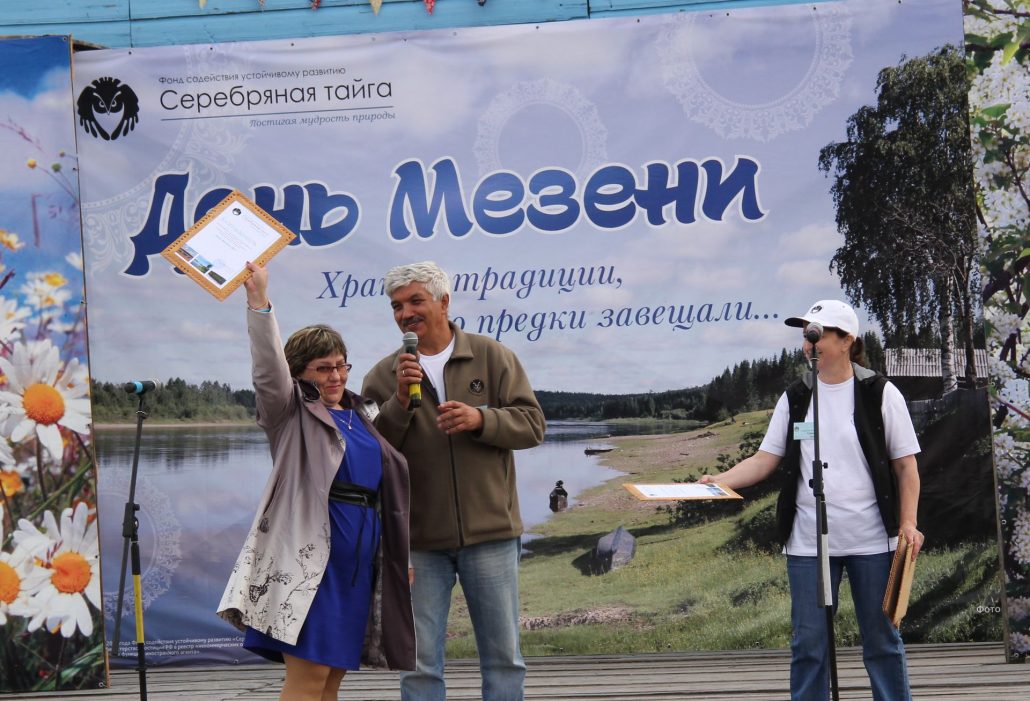
Awarding ceremony

The organizers of the event

